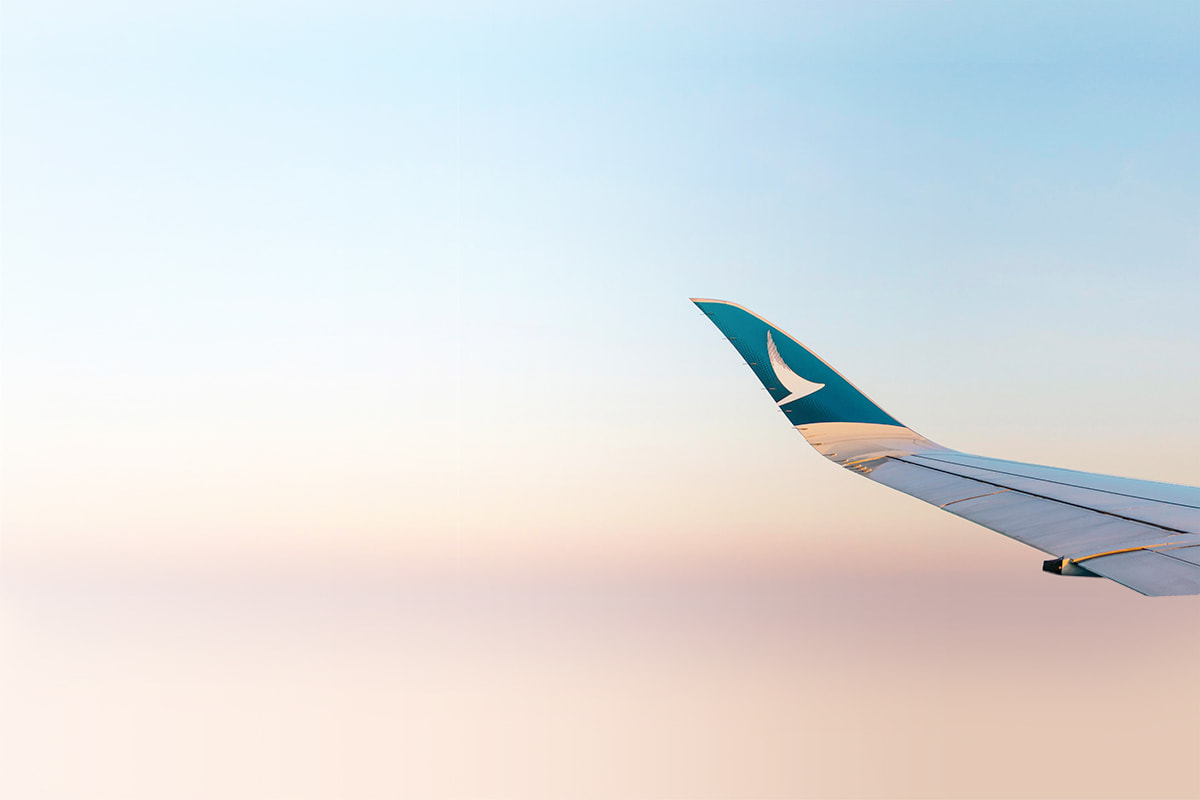Homecoming: our A330 B-HLV clears for takeoff at Alice Springs
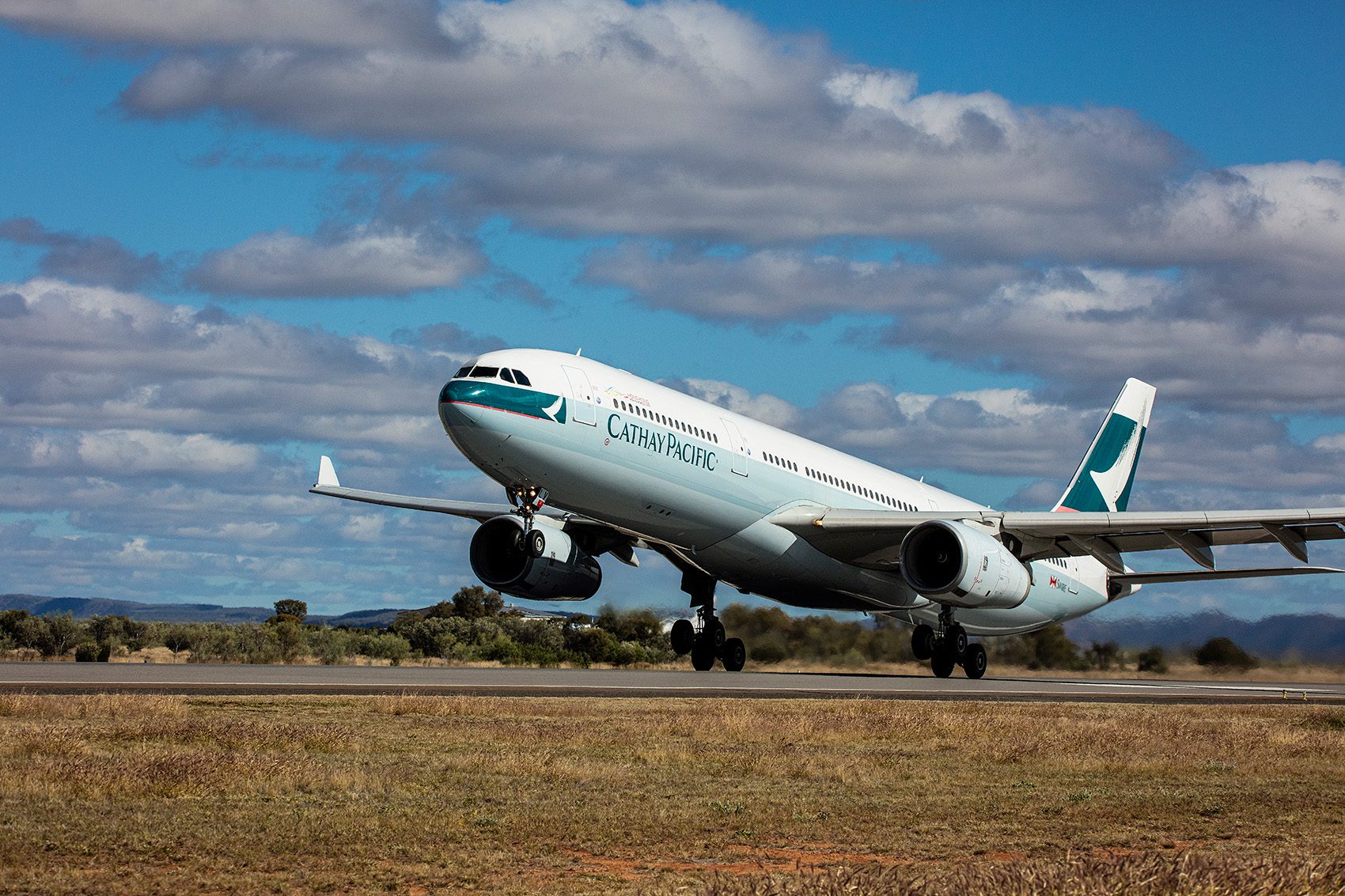
We recently celebrated a momentous achievement – the reactivation of our Airbus A330, B-HLV, the first and last aircraft to be flown to and out of Alice Springs. Since July 2020, Alice Springs has served as the temporary home for 76 Cathay Pacific aircraft during the peak of the pandemic. Over the past two years, meticulous planning and a lot of hard work has led to the gradual return of these aircraft to Hong Kong, heralding a significant step in rebuilding our capacity.
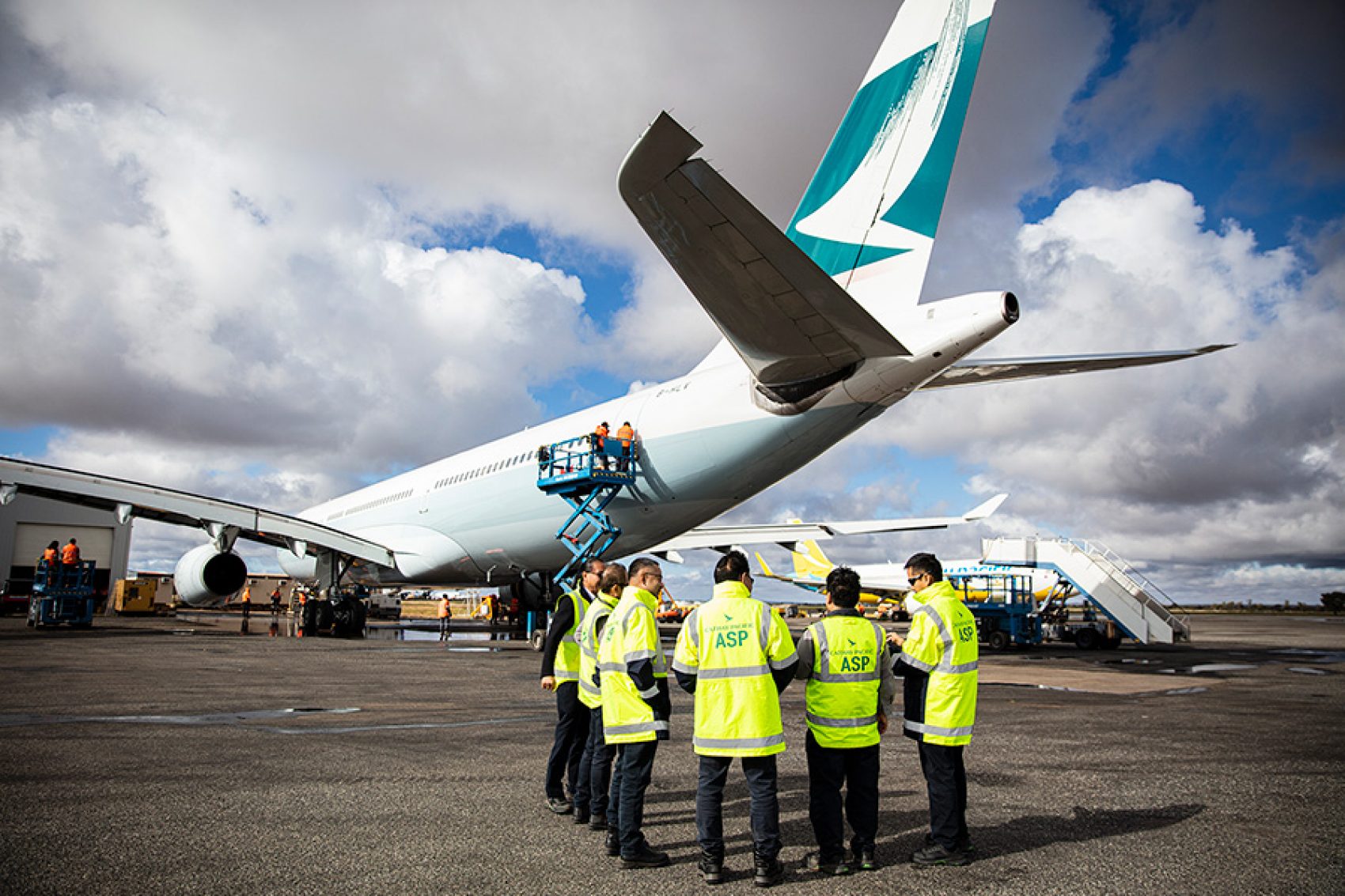
Keeping our aircraft in tip-top condition
The parking of the aircraft in Alice Springs presented unprecedented challenges, requiring painstaking preparation, labour-intensive work and the shipping of over 40,000 parts and equipment from Hong Kong. Despite the complexities, our teams overcame the challenges and ensured our fleet was kept in tip-top condition during its long-term parking. Finally, after being grounded for 1,409 days, the last of these aircraft returned home once again on 6 June, marking a moment of triumph for our team on the ground at Alice Springs and all those involved in the huge task of parking and reactivating our fleet. At the outset it was new – and Northern – Territory for all concerned.
"When we were in Alice Springs, we weren't sure what was going to happen,” said Adam Nelson, Regional Head of Engineering, Southwest Pacific at Cathay Pacific. “To be out here now and to see the last one returning, it's quite special.”

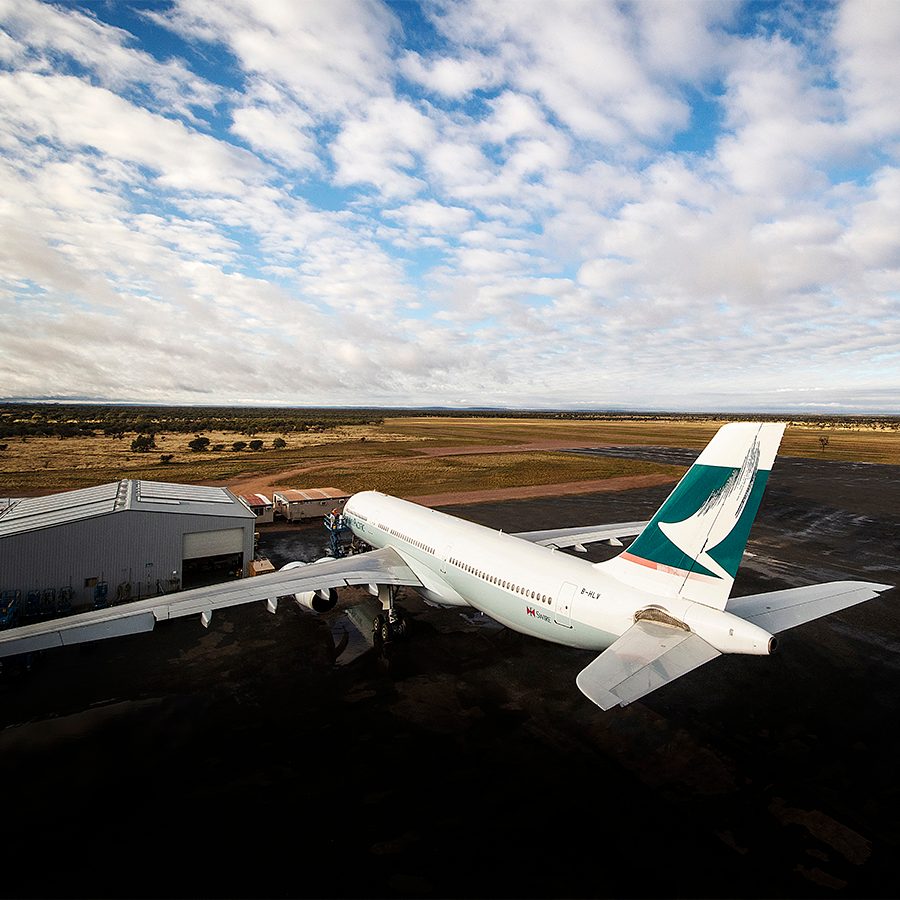
The reactivation
The reactivation process in Alice Springs was demanding, starting with a comprehensive technical assessment by the aircraft manufacturer to determine the specific checks and inspections that would be required on a tail-by-tail basis. The longer the aircraft had been parked, the larger the scale and complexity of the reactivation. In the case of B-HLV, it required up to 6,000 hours of labour. This was a testament to the level of care and attention taken to ensure the aircraft was safe and ready to be ferried back to our hangar in Hong Kong for a further extensive scheduled maintenance check, before re-entering service.
Determining the right moment to start the reactivation was no easy task. Reactivating an aircraft involves proactive planning across all levels of the process, requiring a six-month lead time. Each reactivation was treated as its own project, with careful evaluation, preparation, planning followed by in-depth maintenance checks upon the aircraft's return.
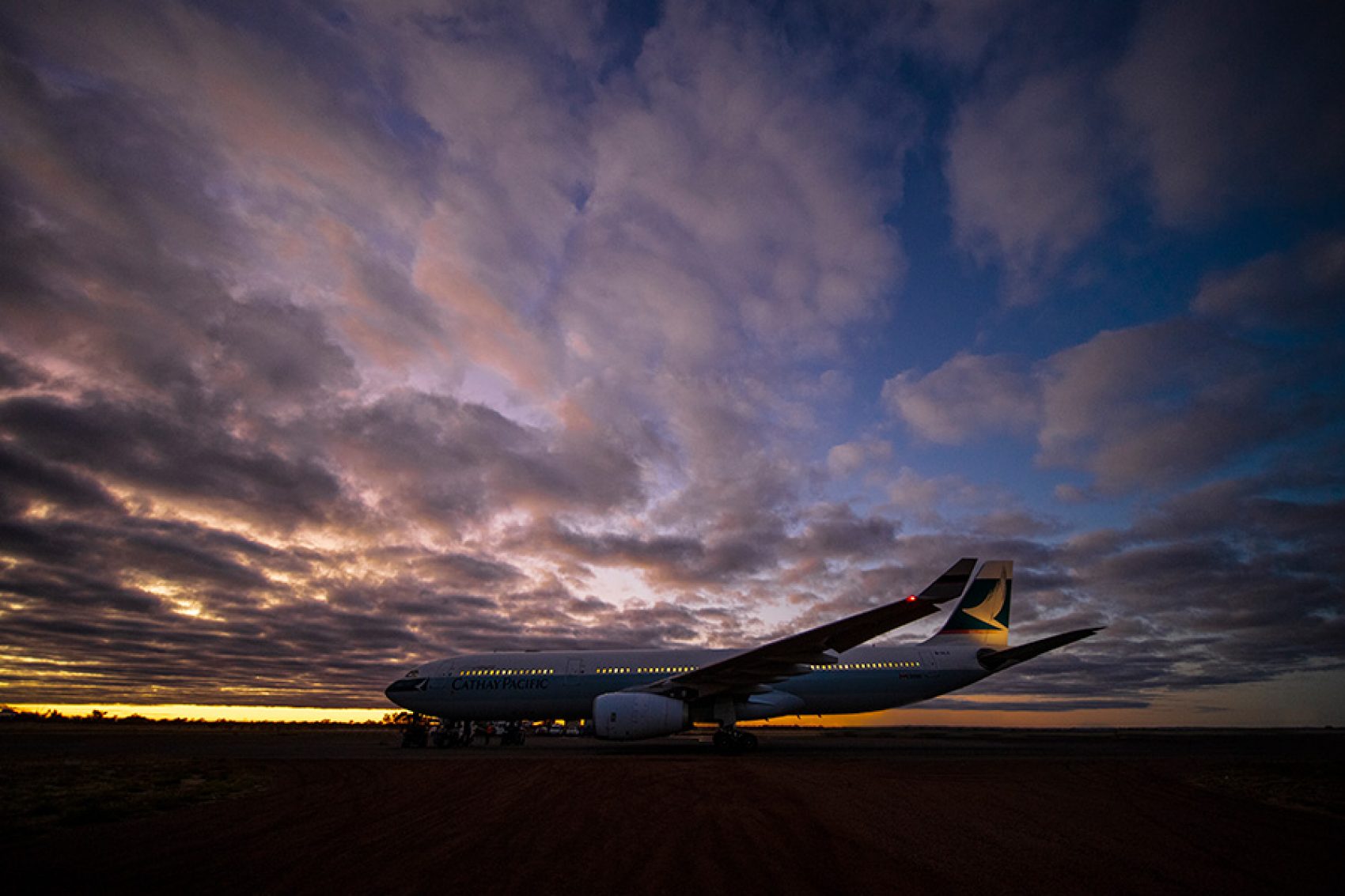
Strategic timing
Working ahead of time to lay the groundwork and prepare schedules was crucial to secure maintenance slots and to meet industry requirements. Close collaboration between our on-site team and the local maintenance provider in Alice Springs was also key, while our teams in Hong Kong worked closely with industry stakeholders to identify and mitigate risks and ensure compliance. Specialist personnel from Cathay Pacific’s engineering partner HAECO in Hong Kong were also deployed to perform certain tasks that were beyond the scope of the local maintenance provider, and the team proactively strategized around potential bottlenecks for a smooth transition.
“An aircraft undergoing long-term parking requires a programme of maintenance checks and inspections that are repeated regularly to ensure it is preserved in tip-top condition,” said Robert Taylor, General Manager Engineering Operations.
“When it comes to reactivating the aircraft from parking, a rigorous series of checks and inspections must first be accomplished to ensure the aircraft is safe to ferry back. The aircraft then needs to undergo a further detailed hangar maintenance check before re-entering service. To manage this body of work across an unprecedented number of aircraft was an incredible achievement by the team.”
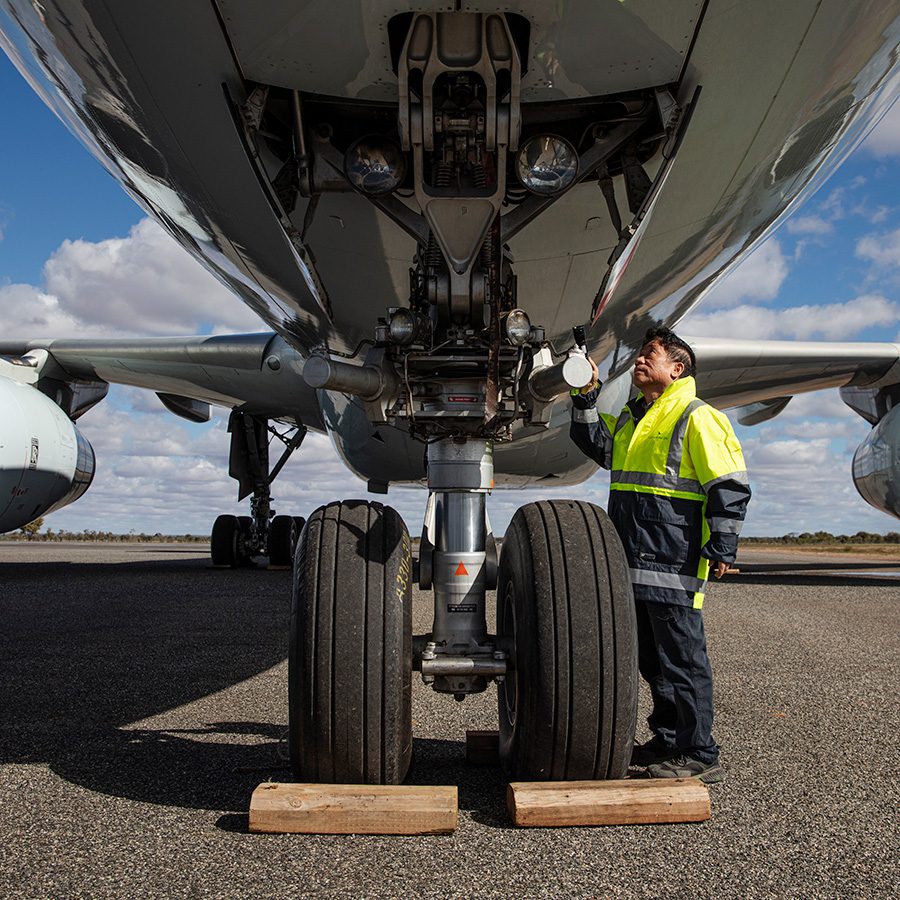

Touchdown
The parking and reactivation programme in Alice Springs was an unprecedented body of work, with many unique challenges that needed to be overcome over four years. This would not have been possible without the support of our people across Cathay Pacific including the Engineering, Planning, Flight Operations, Integrated Operations Centre and Procurement teams, as well as our partners at HAECO, HKCAD Hong Kong Civil Aviation Department, Boeing, Airbus and the local service provider in Alice Springs, APAS .
“Our teams in Hong Kong and around the world have played a vital role in safeguarding our most valuable assets,” said Alex McGowan, Chief Operations and Service Delivery Officer. “I'm immensely proud of their incredible efforts as we reunite our last aircraft from the desert with the rest of our fleet, closing a truly remarkable chapter in Cathay's history.”
The re-activation of our grounded fleet at Alice Springs is a testament to the collective effort, resilience and care of those who worked tirelessly on the project. As we embark on a new chapter, we’re proud to continue taking to the skies backed by our team’s progressive Cathay can-do spirit that made it all possible.
“I've got to know people from this experience whom I would never have worked with ordinarily,” added Nelson. “I will remain friends with them for life.”
More inspiration
- China – the Chinese Mainland, Hong Kong SAR, Macao SAR and Taiwan Region
- Hong Kong SAR - English
- Chinese Mainland (China) - English
- Taiwan China - English
- 香港特別行政區 - 繁體中文
- 中国內地 - 简体中文
- 中國台灣 - 繁體中文
- Africa
- South Africa - English
- Asia
- Bangladesh - English
- Korea - English
- Singapore - English
- Cambodia - English
- 한국 - 한국어
- Sri Lanka - English
- India - English
- Malaysia - English
- Thailand - English
- Indonesia - English
- Maldives - English
- ประเทศไทย - ภาษาไทย
- Indonesia - Bahasa Indonesia
- Myanmar - English
- Vietnam - English
- Japan - English
- Nepal - English
- Việt Nam - tiếng Việt
- 日本 - 日本語
- Philippines - English
- Australasia
- Australia - English
- New Zealand - English




.renditionimage.450.450.jpg)

